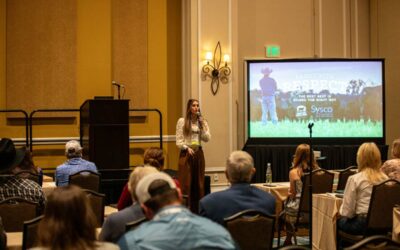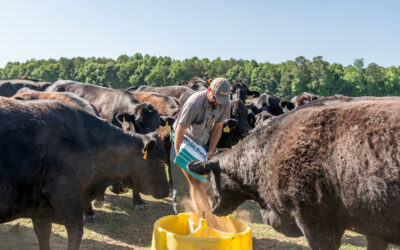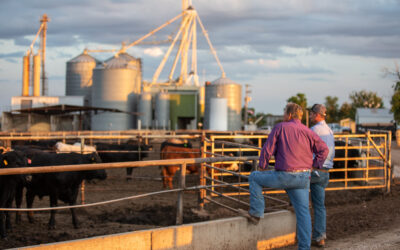
The search for stockmen
By Kylee Kohls
The future of food is in our hands, but do we have enough hands to help feed the world?
Courtney Daigle, assistant professor of animal welfare at Texas A&M University, shares ideas on the narrowing supply of quality stockmen and how cattlemen might find more top hands.
“There are fewer people working in agriculture, so there’s a limited awareness that stockmanship is a potential occupation,” she says. “A lot of our workforce is made up of immigrants, and some of the challenges we have in retaining and recruiting are influenced by our current policies associated with immigration reform.”
Once a stockman is hired and gets good at their job, it’s hard to keep them because of the low pay and long workdays.
“But it’s really important to keep them in place because a critical component of quality care is consistent animal care,” Daigle says. “The animals notice whenever stock people change; not just who’s working, but what kind of relationship they had” and the individual animal history.
Quality and consistent care help drive profit and acceptance rates for the Certified Angus Beef ® brand, which climb highest for calves that never had a bad day.
“A good stock person is worth their weight in gold, but a bad one can break the bank,” Daigle says.
One issue is typically low pay for long, hard days, and it matters if one is paid by the hour or by the number of animals handled.
“Pay strategy can sometimes motivate people to perform quickly, not carefully,” which can lead to “sub-optimal handling” and negative perceptions of the occupation. Stock people can also suffer from “compassion fatigue.”
“They may have thousands of animals that they’re responsible for in a day – that can be overwhelming – and the people get tired themselves,” Daigle says.
Growing up in cities, she dreamt of working with animals, which is why her BS and early career was in zoology, working with African lions.
“It wasn’t until I started working at Texas A&M that I knew what a pen rider was, and I’ve worked with animals my whole life,” Daigle says. “People can’t help that they’re born in the cities and so even if they want to work with animals, they may not know there are other opportunities [besides the zoo].”
As her work continued at Texas A&M, she kept bumping into what she calls the “stockman/zookeeper conundrum.” With many similarities between the two occupations, the divide begins with the demand.
For every rural stock person available, there are two job openings; for every zookeeper position, there are 150 applicants.

“Although they are very different scenarios, the occupations and pay are very similar,” says Daigle, noting cities could be viable recruiting areas for those offering jobs in stockmanship.
“We are having a hard time finding people who will be stewards of our food animals. When we start looking around and asking ‘Where is everyone?’ –- they are in the cities.”
She suggests advertising in urban centers for positions such as animal technicians, opportunity to work with a large number of animals.
“Then provide incentive,” Daigle says. “Highlight quality of life based on pay structure, cost of living and geographical locations. By advertising in some of these areas and targeting people who want to work with animals, producers might find a more diverse and better-qualified suite of applicants to fill those open positions.”
you may also like
Raised with Respect™ Cattle Care Campaign Launched This Fall
Raised with Respect™ was developed as part of a strategic cattle care partnership between Sysco and CAB. The collaboration focuses on supporting farmers and ranchers, equipping them with continuing education to stay current on best management practices and helping to increase consumer confidence in beef production.
You, Your Cows and Their Feed
Expert guidance from Dusty Abney at Cargill Animal Nutrition shares essential strategies for optimizing cattle nutrition during droughts, leading to healthier herds and increased profitability in challenging conditions.
Marketing Feeder Cattle: Begin with the End in Mind
Understanding what constitutes value takes an understanding of beef quality and yield thresholds that result in premiums and/or discounts. Generally, packers look for cattle that will garner a high quality grade and have excellent red meat yield, but realistically very few do both exceptionally well.



